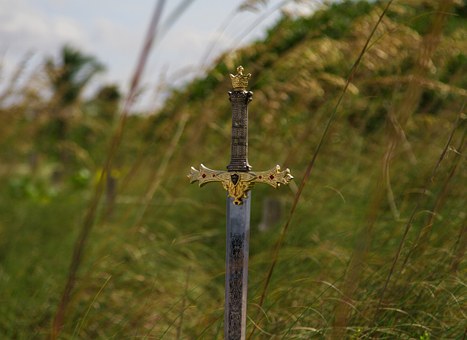by Brian Edward Rise
Traitorous leader of the rebellion that leads to Arthur’s downfall. Originally named Medraut, a legendary and possibly historical Welsh figure who diasgrees with Arthur and does battle with him at Camlann, with fatal results for both. However, the Welsh do not make him plotting or evil. Geoffrey of Monmouth is responsible for the villainous role he assumes in later medieval literature. Possibly revealing an other than Welsh influence, Geoffrey changes the name to Modred, a Cornish or Breton name. Modred is Arthur’s nephew who rules jointly with Guinevere during Arthur’s campaign in Gaul. Modred persuades the Queen into an aldulterous affair and usurps the throne, making peace with the hated Saxons, whom Arthur had destroyed at Badon.Arthur speeds home and engages him by the River Camel in Cornwall. The rebellious usurper is killed and Arthur is borne to Avalon.
Continue reading “Mordred”



